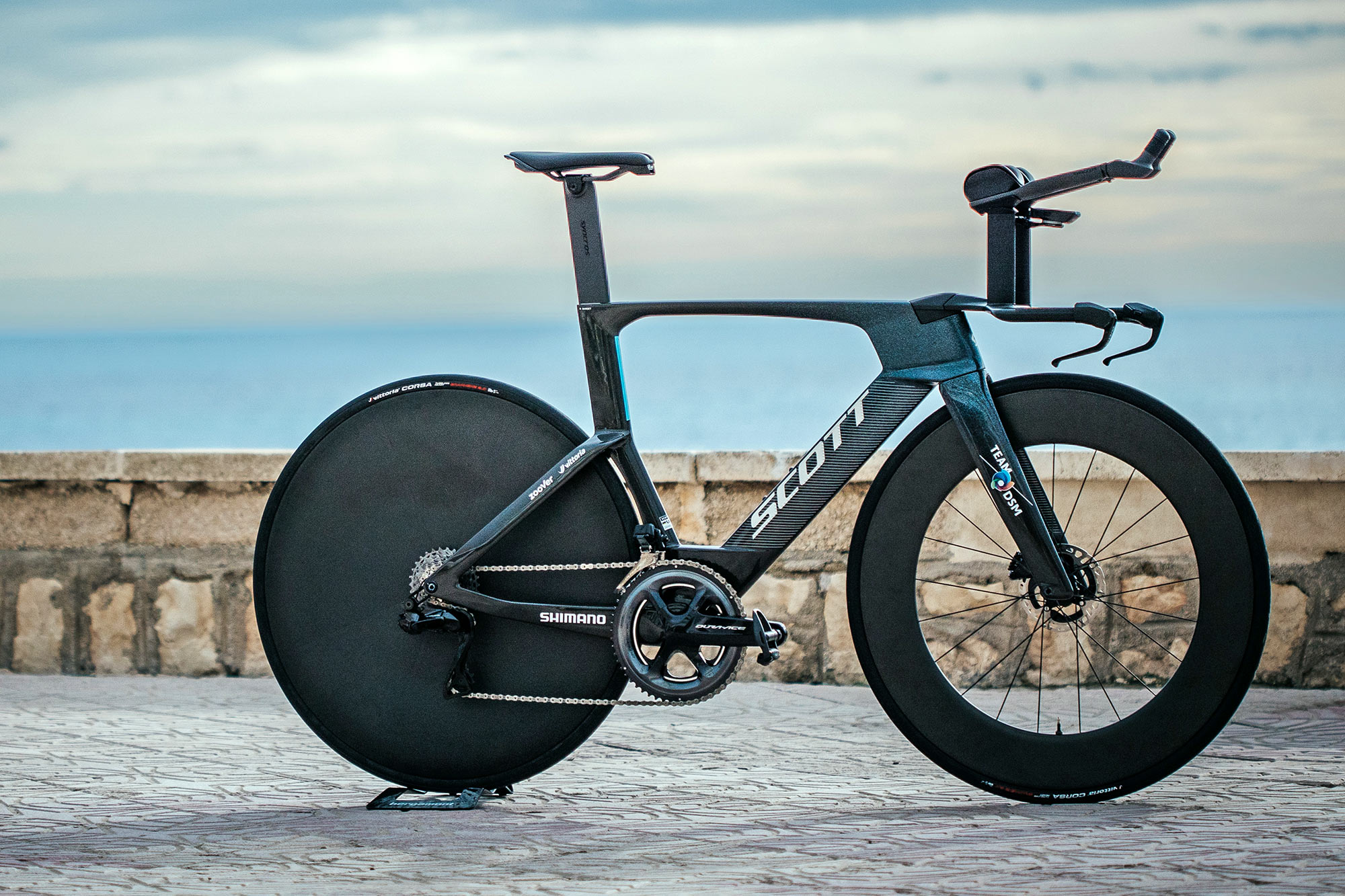Scott’s all-new Plasma RC TT time trial bike set out to be the fastest thing on two wheels that the Swiss bike maker has ever created. Built for the lowest possible aerodynamic drag while racing alone into the wind, the newest generation of the Plasma TT bike was ultimately developed with Team DSM to give the pro riders a pure speed advantage at race pace, while delivering improved high-speed stability, the added control of disc braking, and still maintaining flexibility within an integrated setup to accommodate individual athletes’ unique fit requirements to put the power down when they are racing against the clock.
2023 Scott Plasma RC TT gen 7 time trial bike
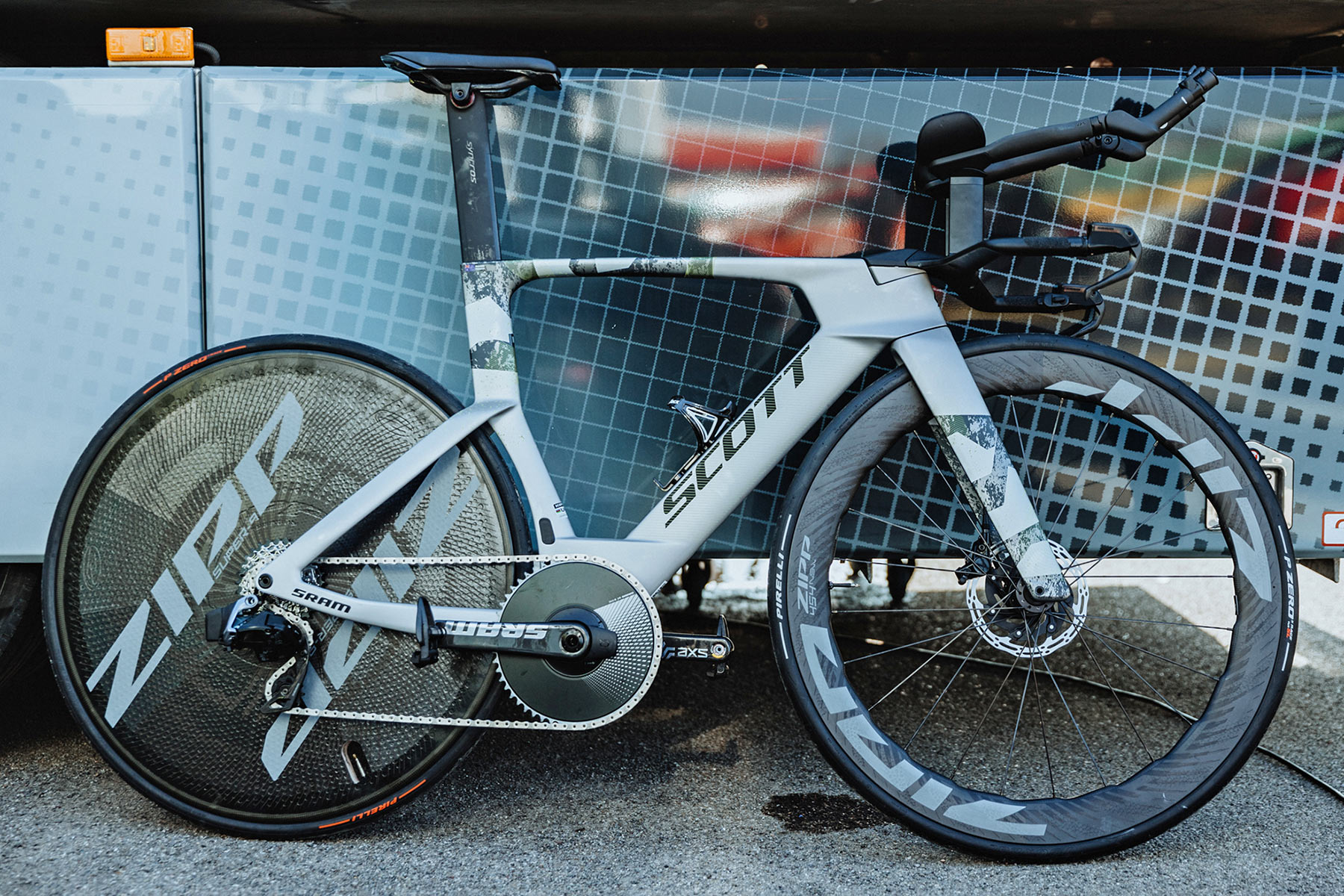
Scott says their primary goal with the new Plasma RC TT was simple: “build the fastest bike we’ve ever made.” But not just the fastest Scott time trial bike ever, they wanted the new Plasma to be the fastest disc brake-equipped TT bike that you can buy. That benchmark was a bit harder, and sent the Scott engineers back to the drawing board – and back into the wind tunnel – as they set out to redesign the Plasma platform and implement every incremental tweak they could to minimize the bike’s aero drag.
But it seems like it worked out, as we had a sneak peek at the new bike with Scope’s latest wheels last summer in the Tour de France.
How did they do it?
Scott’s design team already had developed a slippery-fast triathlon version of the Plasma that didn’t fit within the UCI road rulebook. So they took the Plasma TT project back into CFD to figure out how ways to optimize every tube shape and framer junction within the latest – and now more open – UCI technical regulations to get faster.
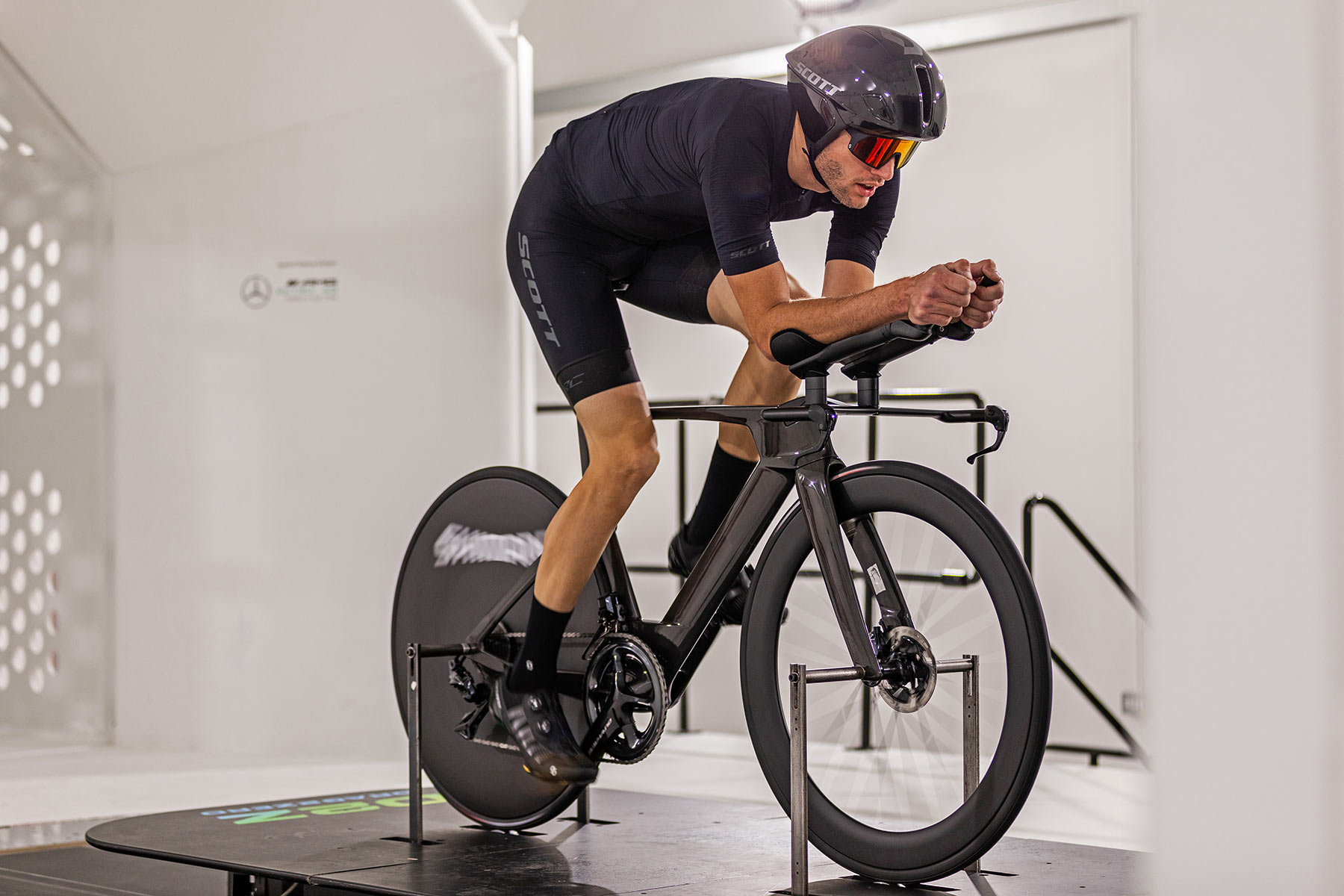
Then, it was back into the wind tunnel with the aerodynamic experts from Drag2Zero and a modular Plasma prototype to test those iterations created by computer simulation with a rider on board. And they ended up producing a number of changes that were faster in the wind tunnel than different solutions that had shown to be faster in CFD.
Most adjustable integrated TT cockpit on the market
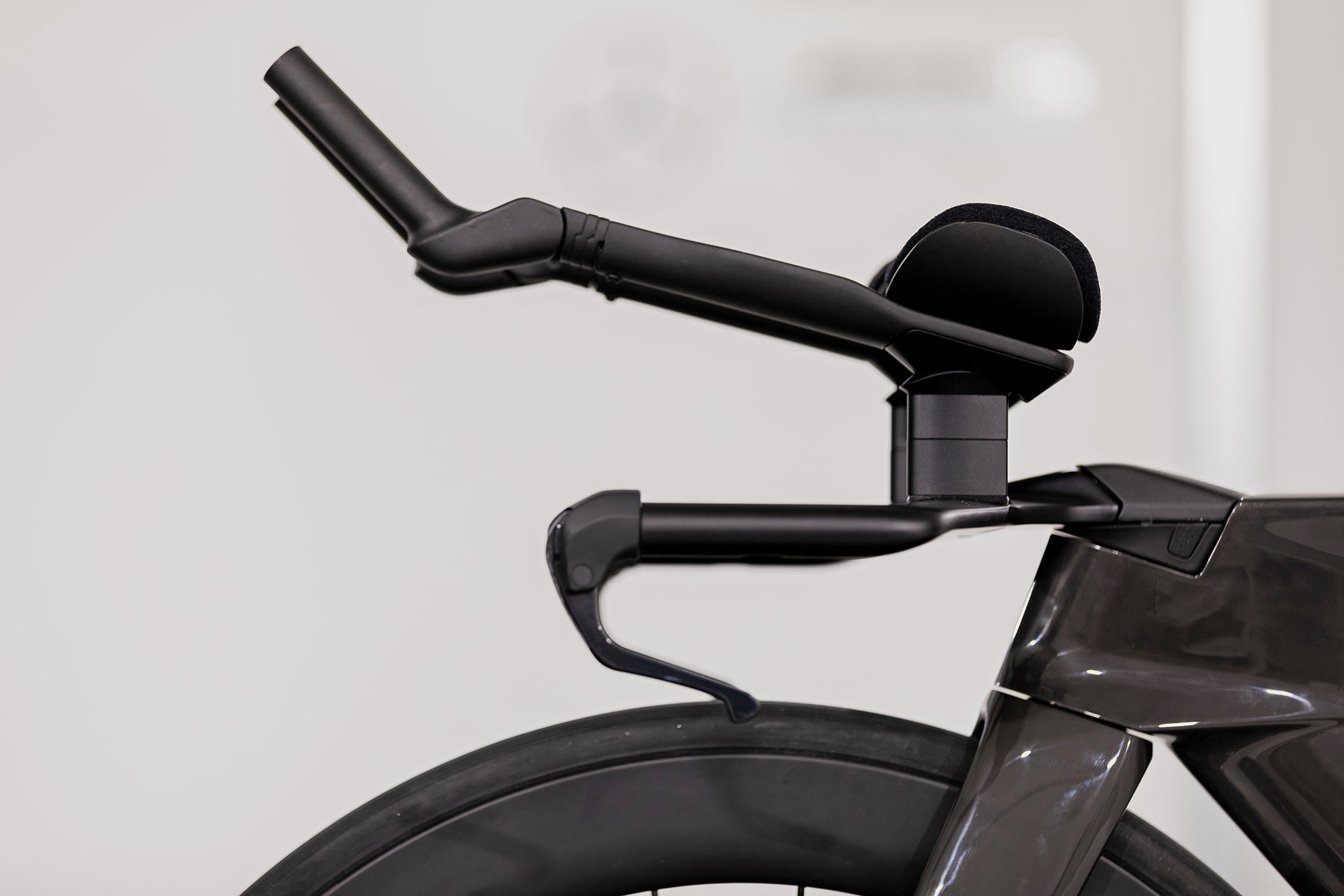
To be sure that every rider from young developing racers to seasoned pros, and from the smallest of Scott’s sponsored female athletes to the tallest male riders on their bikes, cockpit adjustability was a key focus. If a rider can’t get and stay comfortable in an aero tuck on TT bike, it doesn’t matter how aero the bike is. And every rider’s body flexibility and power output variation means cockpit setup truly has to adapt to the rider – a successful TT bike can’t make the rider adapt to it.
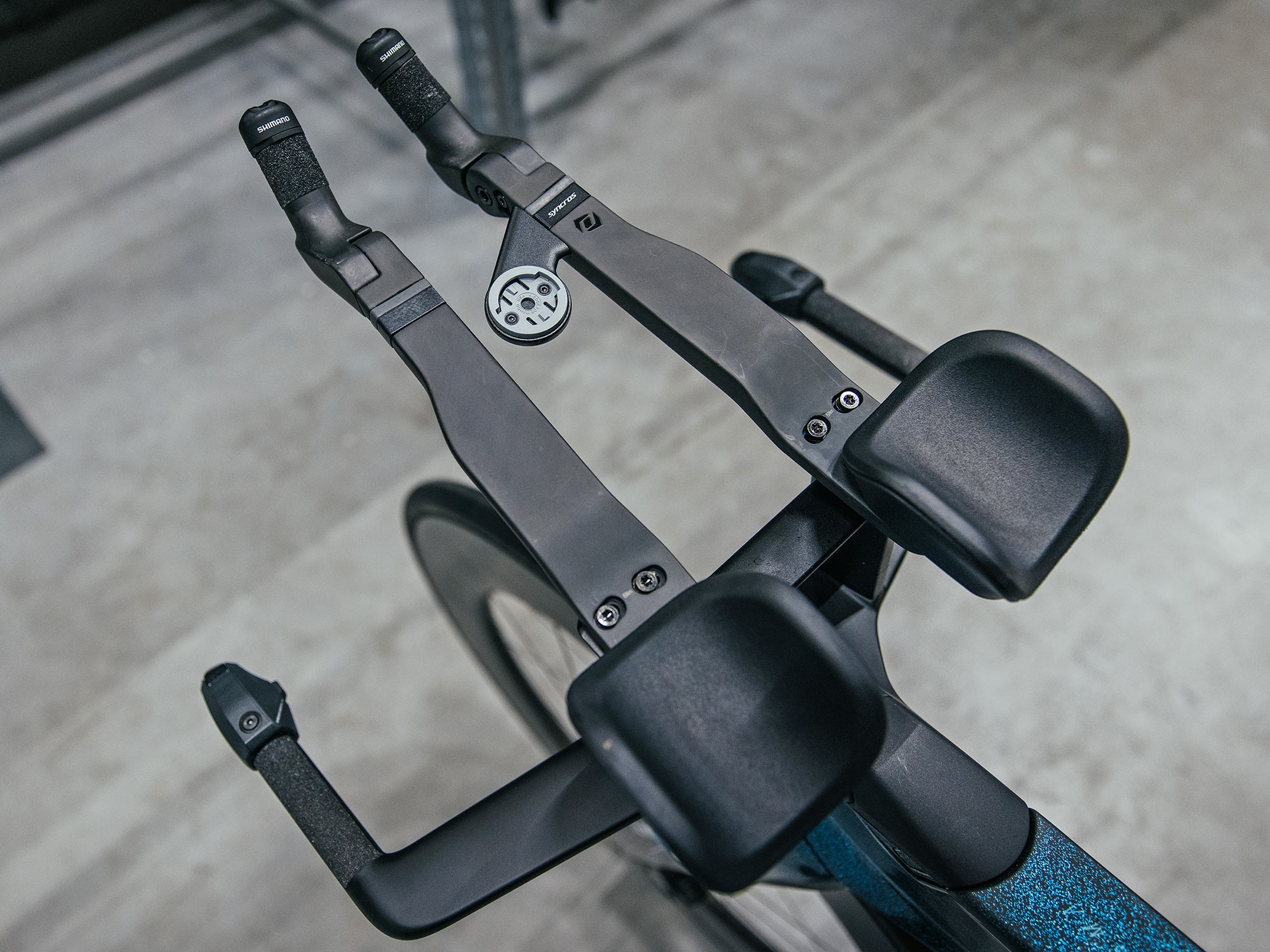
The Scott solution is the new Syncros Creston iC TT integrated cockpit, with internal cable routing only compatible with electronic shifting systems. It gets 3 flat basebar lengths (85, 105 & 125mm effective stems) that riders can first choose from, then top off with highly adjustable towers to support the aero extensions (from just 0mm stack to 145mm high).
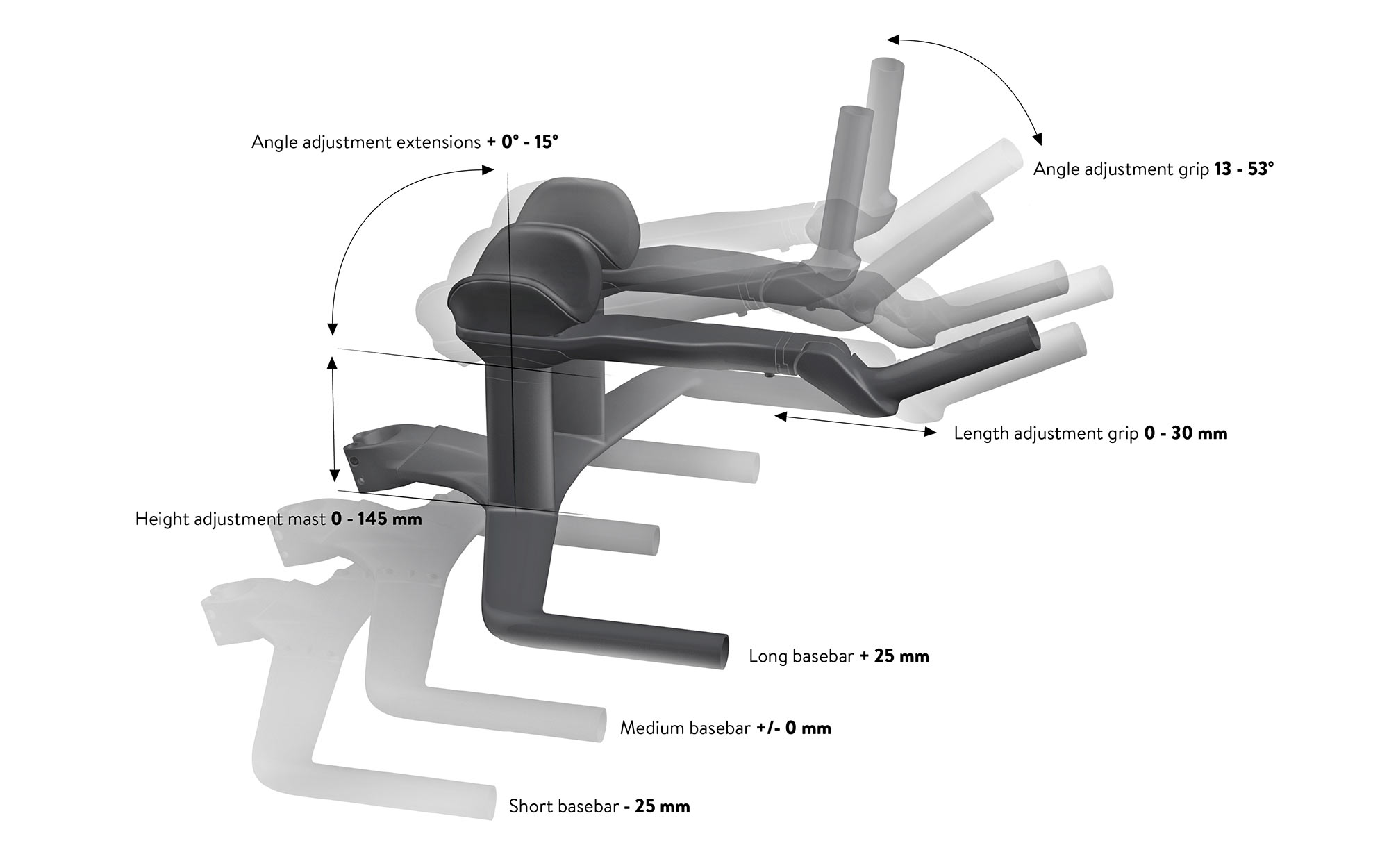
Those aero extensions are then incredibly adjustable. The horizontal extension angle goes from flat up to the UCI-allowable max of 15° upturned, up to 5° of lateral rotation is possible for riders who prefer to bring their hands close together, plus classic wide extension length adjustability (0-30mm) and rotation of the angle for the grips (13-53°).
Updated TT Geometry
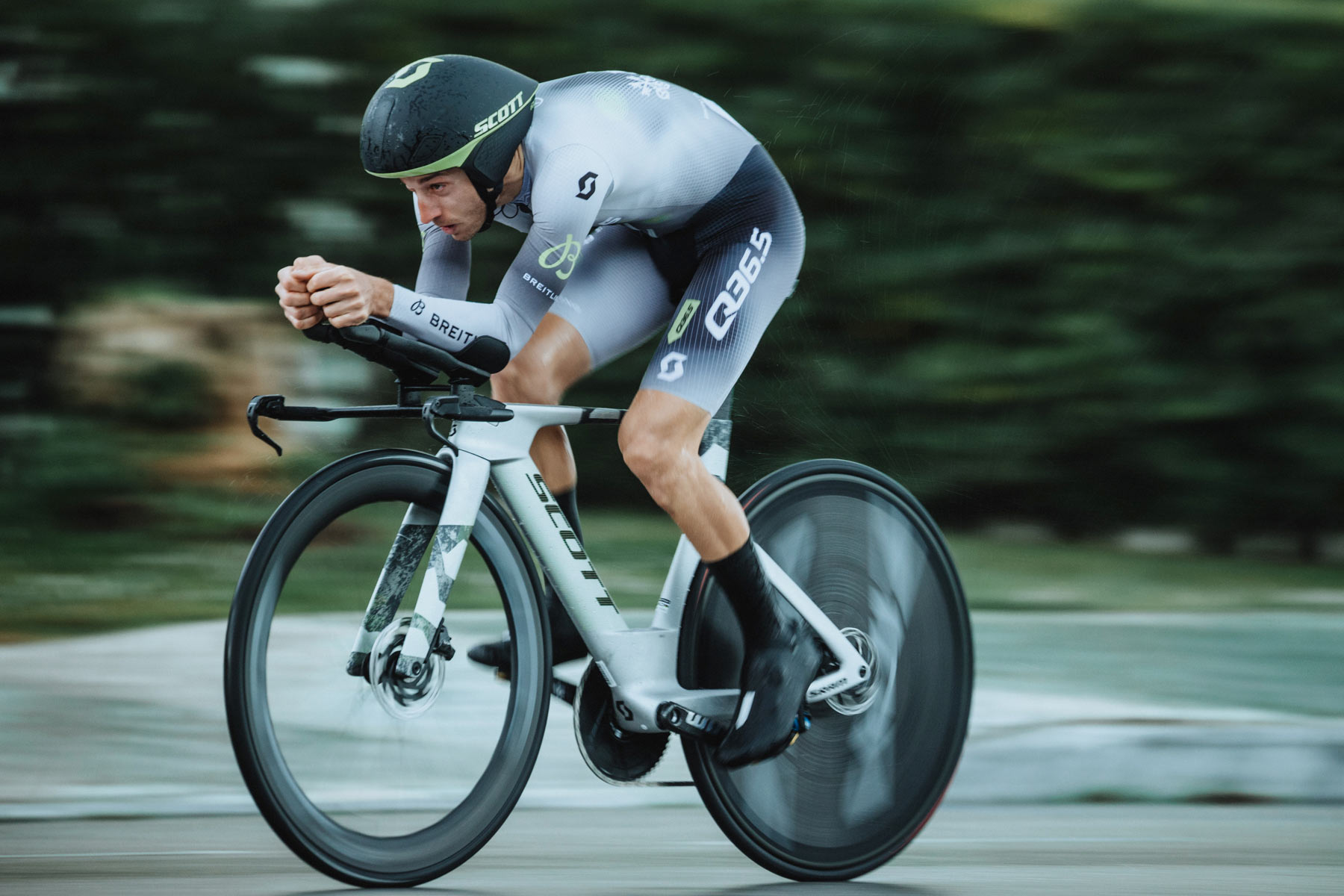
Geometry-wise, the new 7th generation Scott Plasma RC TT bike doesn’t greatly deviate from its already proven quick handling – with a 72.3° head angle, 75° seat angle, short 410mm chainstays, and 72mm BB drop. But Scott did want to make it more stable at speed, so the slightly shortened the fork’s offset.
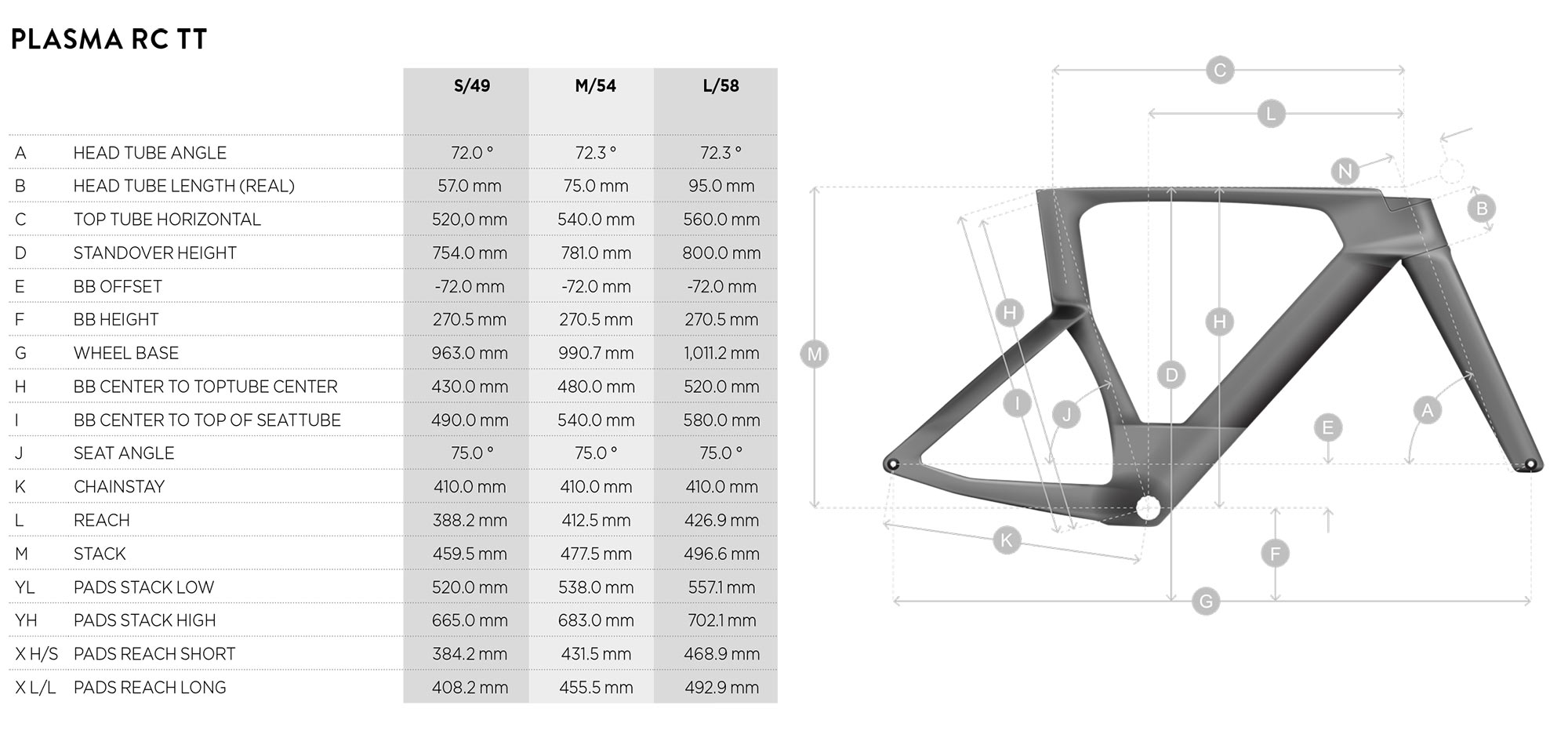
The result is 5.2mm increase in fork Trail was said to boost stability, so the racer can remain longer in their deep aero tuck, generating power with the lowest drag, whether through a twisting TT course or in variable wind conditions.
Aero Details
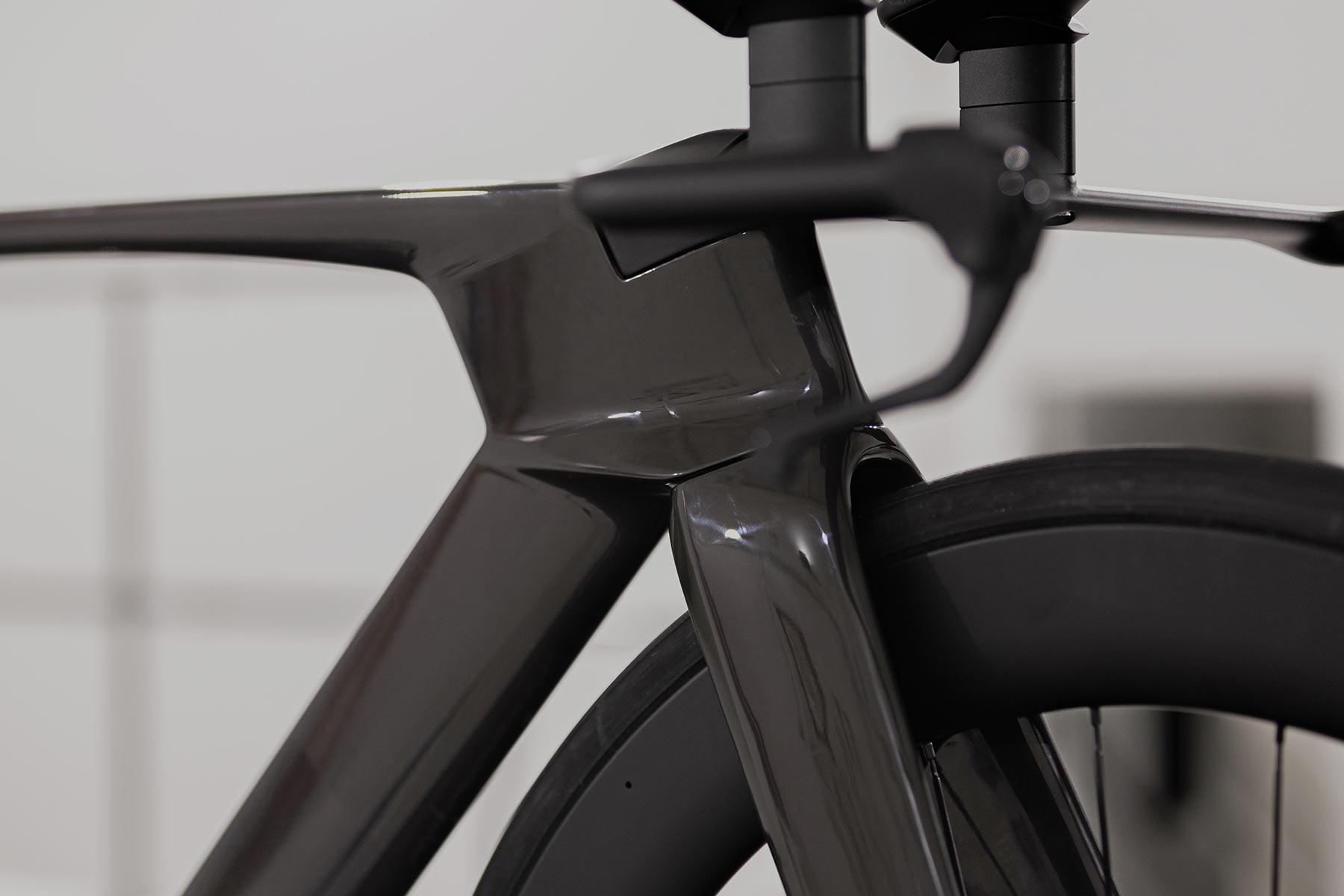
To make the narrow headtube work with the fully internal routing, Scott developed & patented (:facepalm) a new slotted steerer solution that keeps a narrow (1.125″?) upper headset while allowing the cables to enter through the top bearing, pass through the steerer tube, and enter the inside of the frame. The design keeps the larger 1.5″ lower bearing for tapered steerer stiffness, but allowed a smooth aero transition from the wider fork crown into a narrower headtube. Then, behind the fork crown, the downtube transitions back to a narrower airfoil shape to redirect the turbulent air spinning off the front wheel.
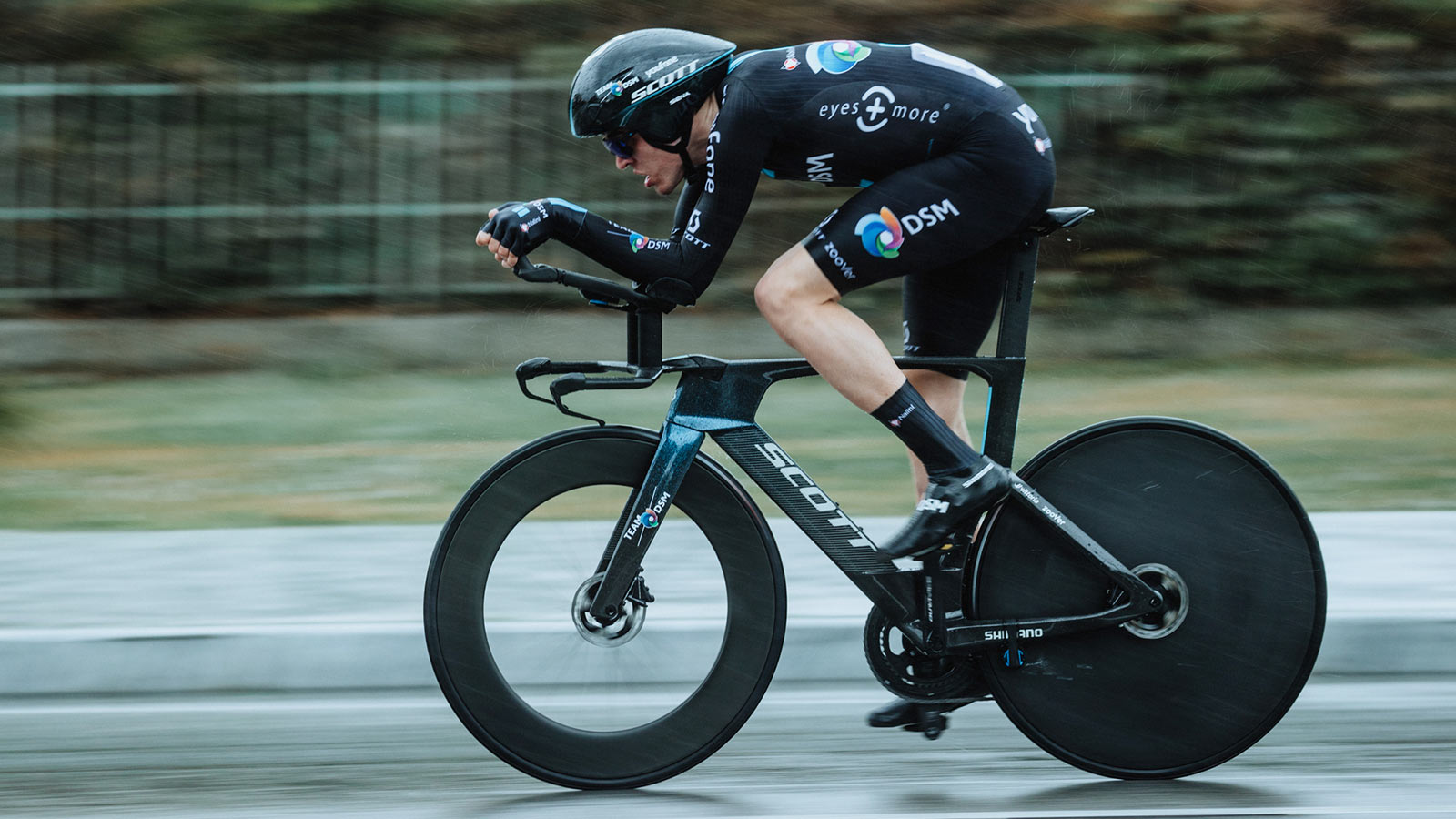
In the end, Scott says the new Plasma RC TT reduces frame weight by 12% without any stiffness sacrifice over the previous 6th generation Plasma. And it is said to benchmark at a full 33 seconds faster over the course of a real-world 40km time trial with the same rider power output, compared to the previous bike!
Right from the get-go you can sense that the Plasma RC TT is optimized for riders to give their best during time trials. It is not just the stiffness, riding stability, and aerodynamics of the frame that is great, but most definitely also the adjustability of the new cockpit: Due to the improved ergonomics that come with it, it makes a real difference, as it supports you to stay in the most aerodynamic position over time.
– Romain Bardet, Team DSM
Scott Plasma RC TT – Pricing, options & availability
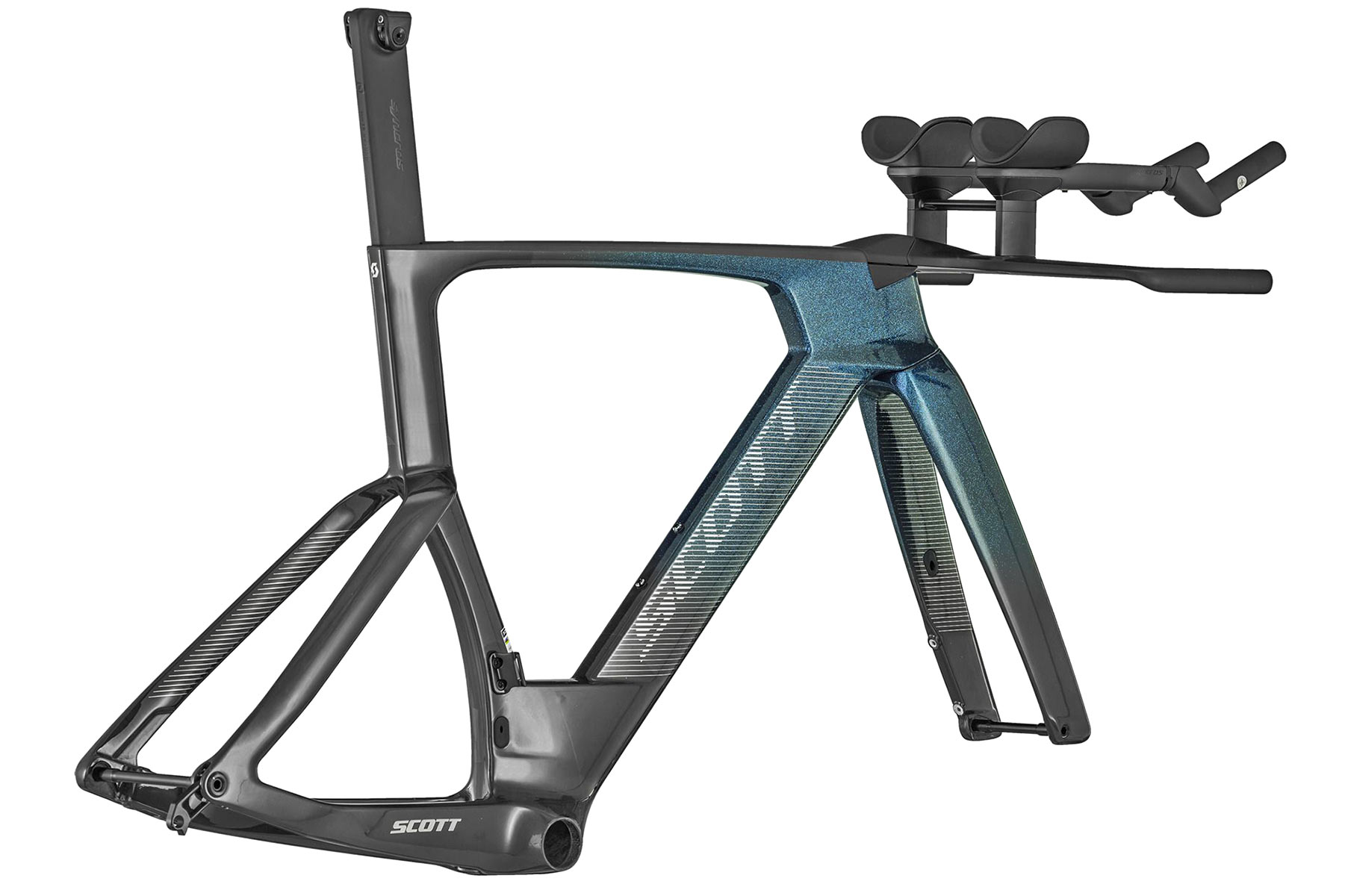
The new 2023 Scott Plasma RC TT is offered now exclusively as a top-tier HMX carbon frameset/kit in three stock sizes (S 49, M 54 & L 58cm). For 8000€, you get the new Plasma TT frame, fork, headset, proprietary seatpost, and the fully customizable fit Syncros Creston iC TT cockpit of basebar, towers & extensions.
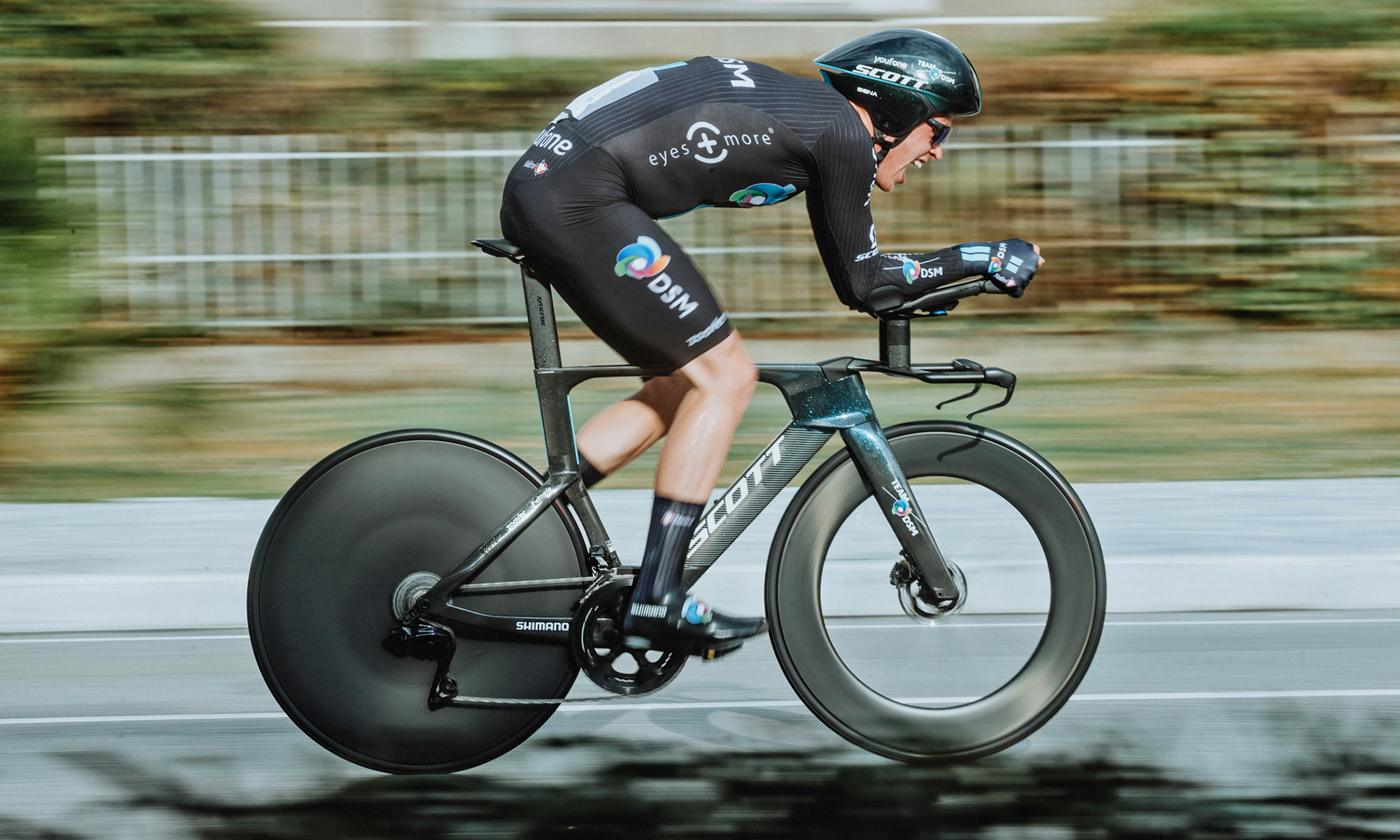
The new TT bike also comes in just this one fast paint job, fading from sparkly chameleon green up front to carbon black out back.
